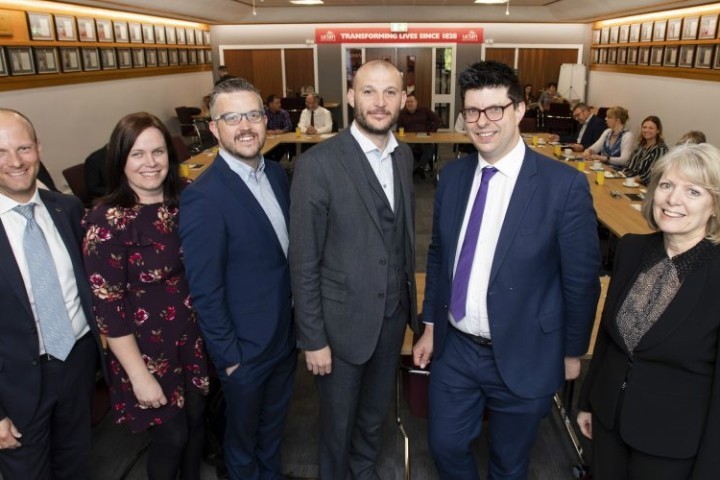The event covered what local authorities, work programme providers and educational institutions are doing to break down barriers to work and to create a workforce that is responsive to the business skills’ demands of the region.
Lancashire’s economy is predicted to grow by 27 per cent over the next 10 years, with the expected average growth of 33 per cent for the rest of the UK. With an ageing workforce and modest population growth, Lancashire’s challenge is to achieve the employment targets set out by the Lancashire Economic Partnership (LEP) in industries such as aerospace, digital and advanced manufacturing.Henri Murison said: “Our Educating the North report highlighted the need to focus on skills not only in Lancashire, but across the Northern Powerhouse, to meet the needs of our businesses as in key capabilities like advanced manufacturing where we are below national average on levels of higher skilled people.
"There is a need for employers to come together with universities and all those partners who have an influence over the future course of young people’s lives, as well as ensure the next industrial revolution does not pass by their longer standing, committed workers."He added: "As the Education Select Committee raised after their recent hearing with former chancellor George Osborne, Lord Jim O’Neill and myself, there is a need to close the gap in how children do compared to London, particularly the least well off areas, which is why we are working to ensure we have as many good and outstanding schools as London does by 2022.
“The north is leading the way on degree apprenticeships – and institutions like UCLan are displaying real commitment to getting these great opportunities open to more students, as well as reaching employers of all sizes and scale. We believe their work on this will be best practice, which other universities across the country seek to follow the example of.”Dr Lynne Livesey said: “Businesses have told us they need to have faster access to apprentices and employable, work ready graduates and UCLan’s response aims to position the university as one of the largest providers of degree apprenticeships in the region.
"UCLan’s objective is to accelerate the number of apprenticeships in the region and we have plans in place to allow students mid-way through their degrees to switch onto a flexible degree apprenticeship programme.“This is a great opportunity for employers as they get work-ready graduates trained in their environments, enabling them to ensure they are recruiting the right people who can add value to their business – almost a ‘try before you buy’ approach to staff recruitment. It is also positive for UCLan students who graduate, not only with considerable work experience but also with less student debt, which is one of the first initiatives of its kind in the country."
The business breakfast event also discussed the potential devolution of government power to build a skilled labour market for all. Delegates considered whether taking control over regional skills budgets to shape specific education and training needs could be the solution. Chris McKenna from Downtown in Business commented: “Business leaders from across the county fed into the panel their experience and frustrations within the current model, as well as exploring new ways they could work with larger organisations such as the University of Central Lancashire in exploring the remit of apprenticeship levy, complexity and engaging with smaller SMEs."





















